Now you see, I'm already getting all high-falutin' and academic. Let's back up.
I wanted to know where this term came from, so I did some research. The phrase, "The Male Gaze" was popularized by a "feminist film theorist," Laura Mulvey in an article she wrote in 1973 that was published in a British film magazine ("film theory journal") called Screen. The article was entitled: "Visual Pleasure and Narrative Cinema." The premise of the piece is that Ms. Mulvey is analyzing the act of viewing cinema, particularly images of women, from a Freudian viewpoint. How the act of being "fascinated" by film images is determined by the already present fascination of looking at anything. Confused yet?
I challenge you to read this article and make sense of it on the first reading. I've read it three times, with numerous reference books at hand, in an attempt to get to the heart of what Ms. Mulvey is saying. Try making sense of this:
"The paradox of phallocentrism in all its manifestations is that it depends on the image of the castrated women to give order and meaning to its world. An idea of woman stands as linchpin to the system: it is her lack that produces the phallus as a symbolic presence, it is her desire to make good the lack that the phallus signifies."
And we're only starting the second paragraph. Can you make sense of this? Do you need to be a Freudian scholar to make sense of it? To me, she's saying that because a woman doesn't have a penis, men turn her into a giant penis. And then stare at her? Is this what she's saying? Am I wrong? Does the "male gaze" then mean that men stare at women not to objectify them; but because they're obsessed with their missing penis?
My question for Ms. Mulvey might be: Why Freud? If she was (is) a feminist, why buy into a patriarchal/phallocentric line of thinking put forth by a man? Why not just outright reject Freud and his theories. I mean, they're only theories. Like "penis envy." Is that really a scientific fact? Are all men really afraid that women want to castrate them? I mean, if that were true, wouldn't most men be trying way less to get laid?
So anyways, later in the article, Ms. Mulvey gets into things like scopophilia; which is deriving pleasure from looking at things. She then examines this phenomenon in the context of watching a traditional movie. She then posits that the very act of looking at a woman negates her very existence. She argues (I think), that movies are a male dominated enterprise--the making of them, that is--and that the Woman is in the film only as a catalyst to spur the male to action of whatever kind; and that is it. Once she does this, she dissolves into nothingness. Here's another word-salad of a sentence from that section:
Both (scopophilia and ego) pursue aims in indifference to perceptual reality, and motivate eroticised phantasmagoria that affect the subject's perception of the world to make a mockery of empirical objectivity.
I'm not sure even Ms. Mulvey knows what this means. My take is that she's saying (and I'm not sure) is that looking at a movie image lets your forget who you are and get turned on by it. ?
The determining male gaze projects its fantasy onto the female figure, which is styled accordingly. In their traditional exhibitionistic role women are simultaneously looked at and displayed, with their appearance coded for strong visual and erotic impact so that they can be said to connote "to-be-looked-at-ness."
"To-be-looked-at-ness" has to be the most understandable string of words in her entire piece. And to that I say: "Duh!"
Of course women in films are styled accordingly to be looked at. Who was it that said that the entire history of cinema was boys behind cameras taking pictures of girls in front of them? Or something of that nature. And let's remove the camera, shall we? It's still the same dynamic. And we might ask the question: "which came first, the male gaze or the female look"? And not only do women style themselves accordingly to be looked at by men; they even more so style themselves accordingly to be looked at by other women. I don't think we can really blame phallocentrism here. Or even chalk it up to that.
(There are films with a woman as main protagonist, of course. To analyse this phenomenon seriously here would take me too far afield...)
Too far afield? Her article is entitled "Visual Pleasure and Narrative Cinema." That's a pretty big field. I think leaving out an actual consideration of female protagonists in film is a cop-out. And what about all those female cinema goers who are in the auditorium, gazing at the ladies on the screen. Are they enacting the Male Gaze themselves? I think her theory really starts falling apart when you start factoring in those obvious elements.
Finally, we get back to the whole "castration fear" hypothesis. The penis-less Woman on the screen poses a threat to the gazing male ego. The male ego must then either 1) Demystify the woman by examining her mystery? 2) Devaluing, punishing, saving her 3) complete disavowal/denial by turning the woman into a fetish object (a pair of legs or a face).
So, "The Male Gaze," in Ms. Mulvey's view, is a Freudian based theory of Woman as castration threat and Male Gaze as way of destroying threat. That's how I read it. But does it have validity? I don't know. You have to assume that Freud was right about everything in order for this thesis to work. But if it doesn't (Freud's part of this); then couldn't "The Male Gaze" be a very positive thing? A simple admiration of women and their inherent beauty? A case of the male simply gazing at a woman because he finds her attractive; not wanting to control or destroy her?
Women, whose image has continually been stolen and used for this end, cannot view the decline of the traditional film form with anything much more than sentimental regret.
Well, I think anyone who would only go to see non-traditional film forms instead of a Lana Turner movie would regret that choice pretty quick.
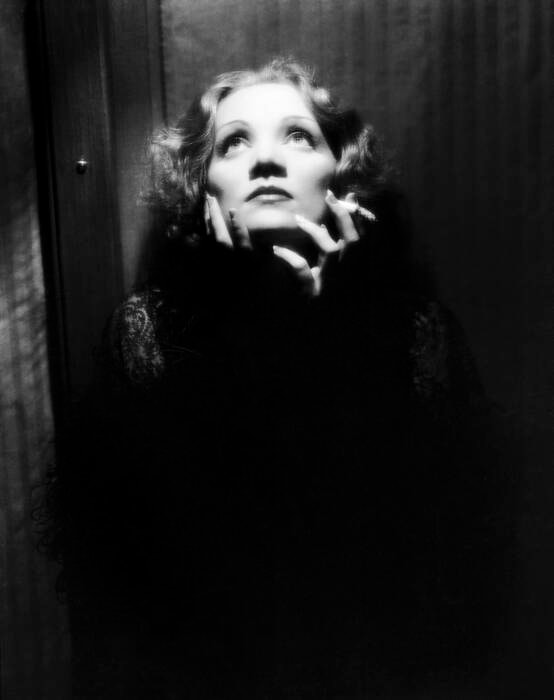
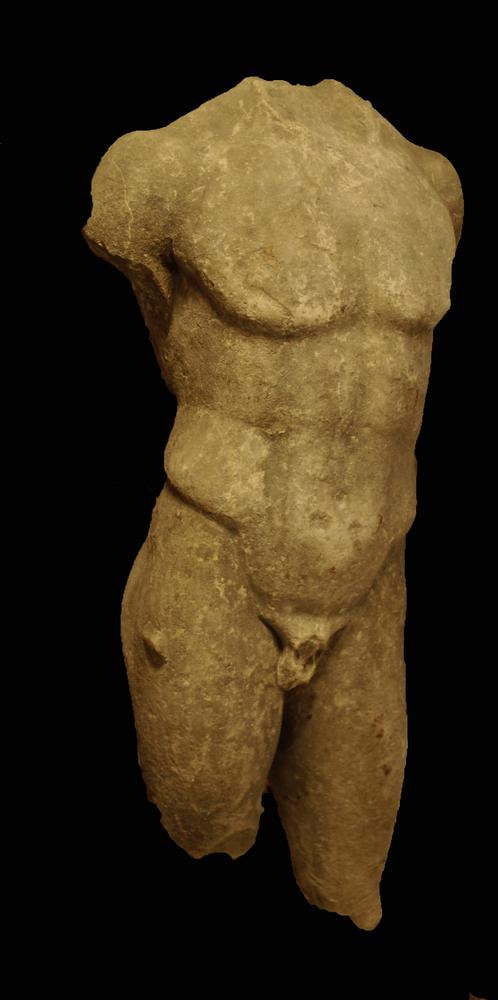
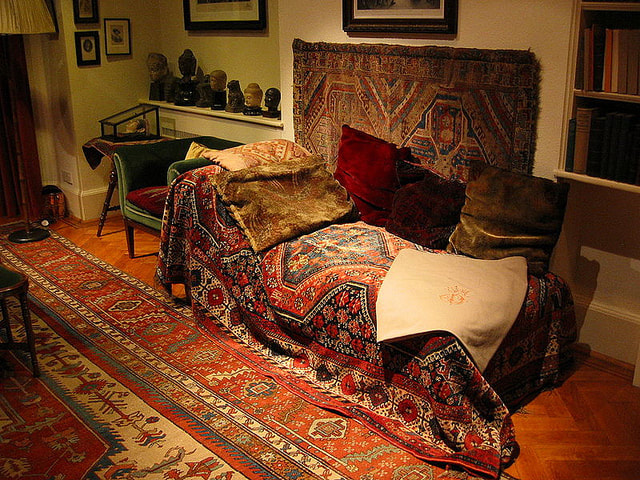

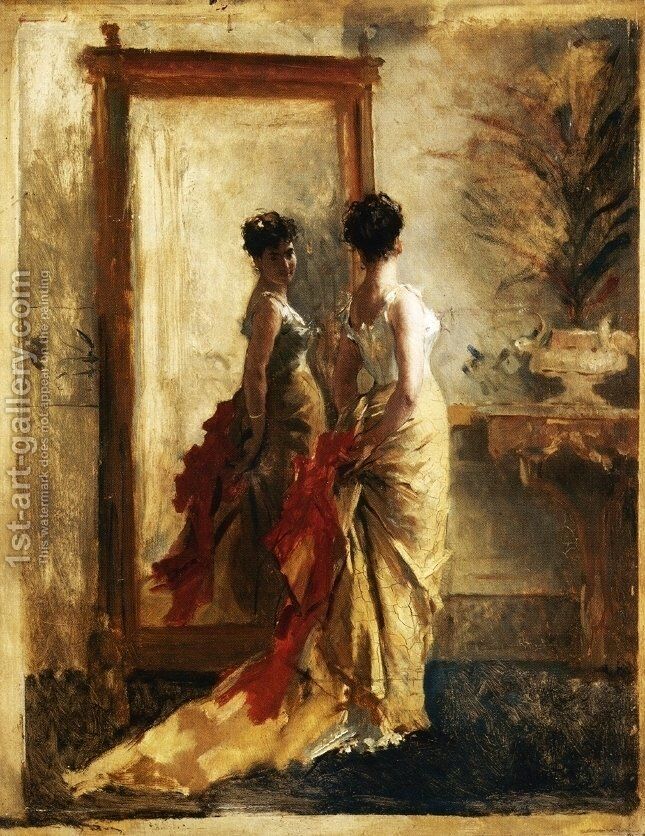
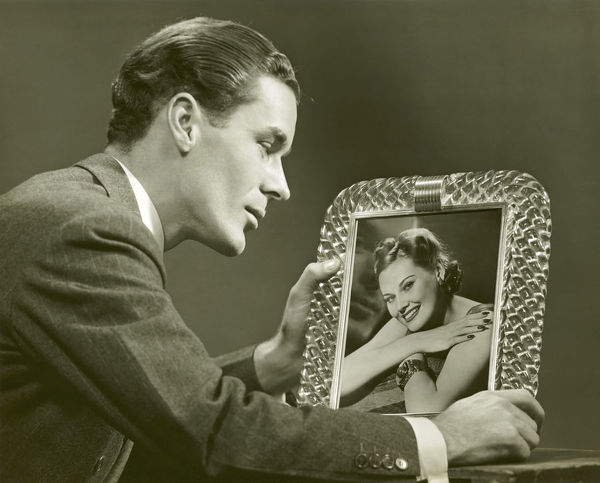
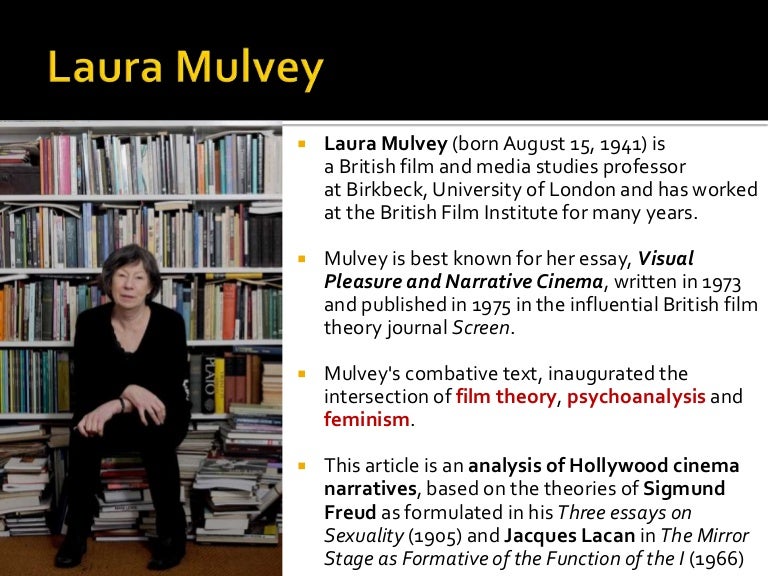
 RSS Feed
RSS Feed